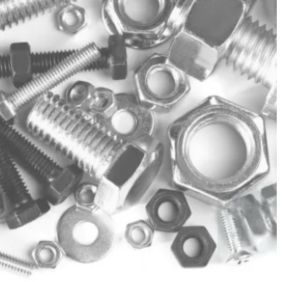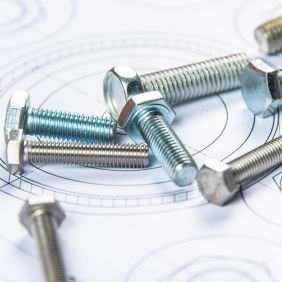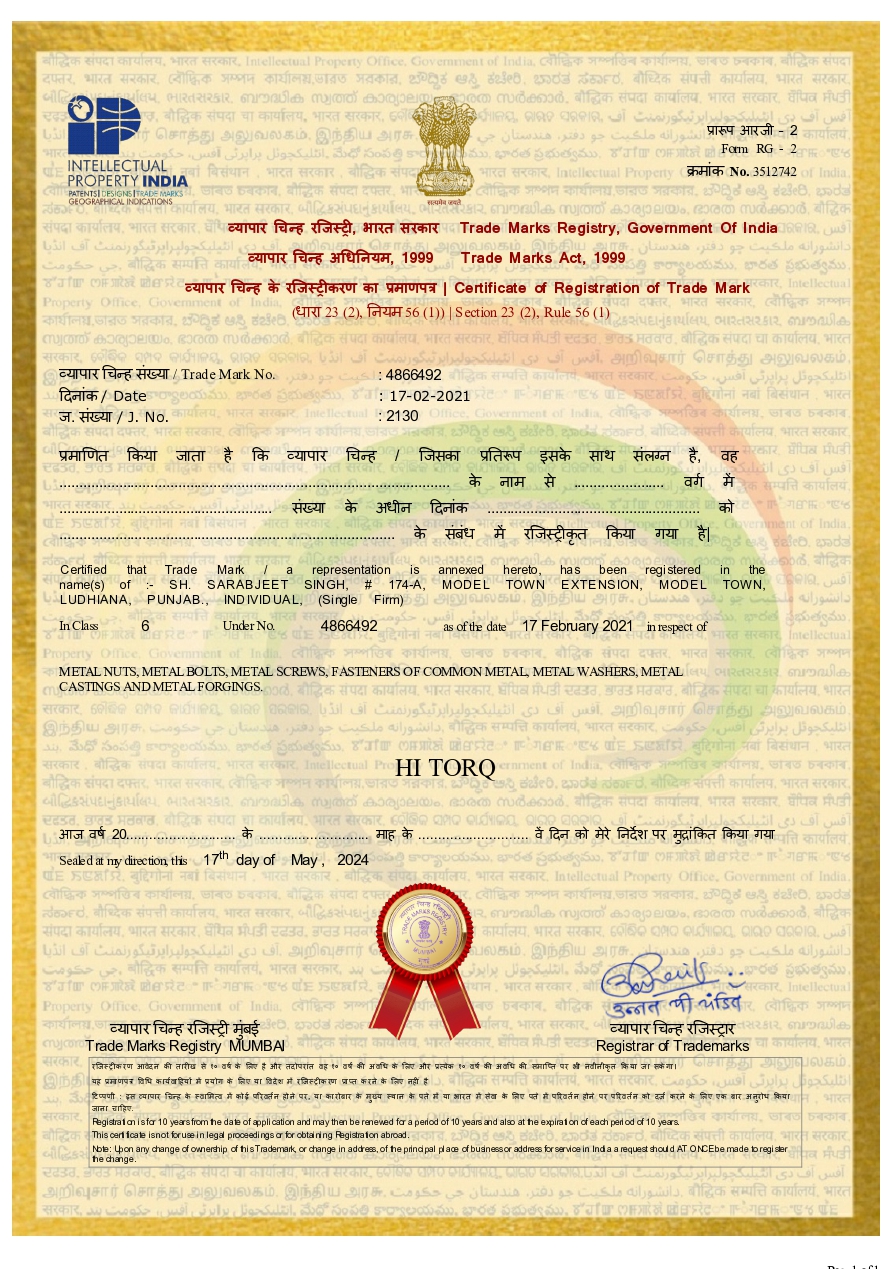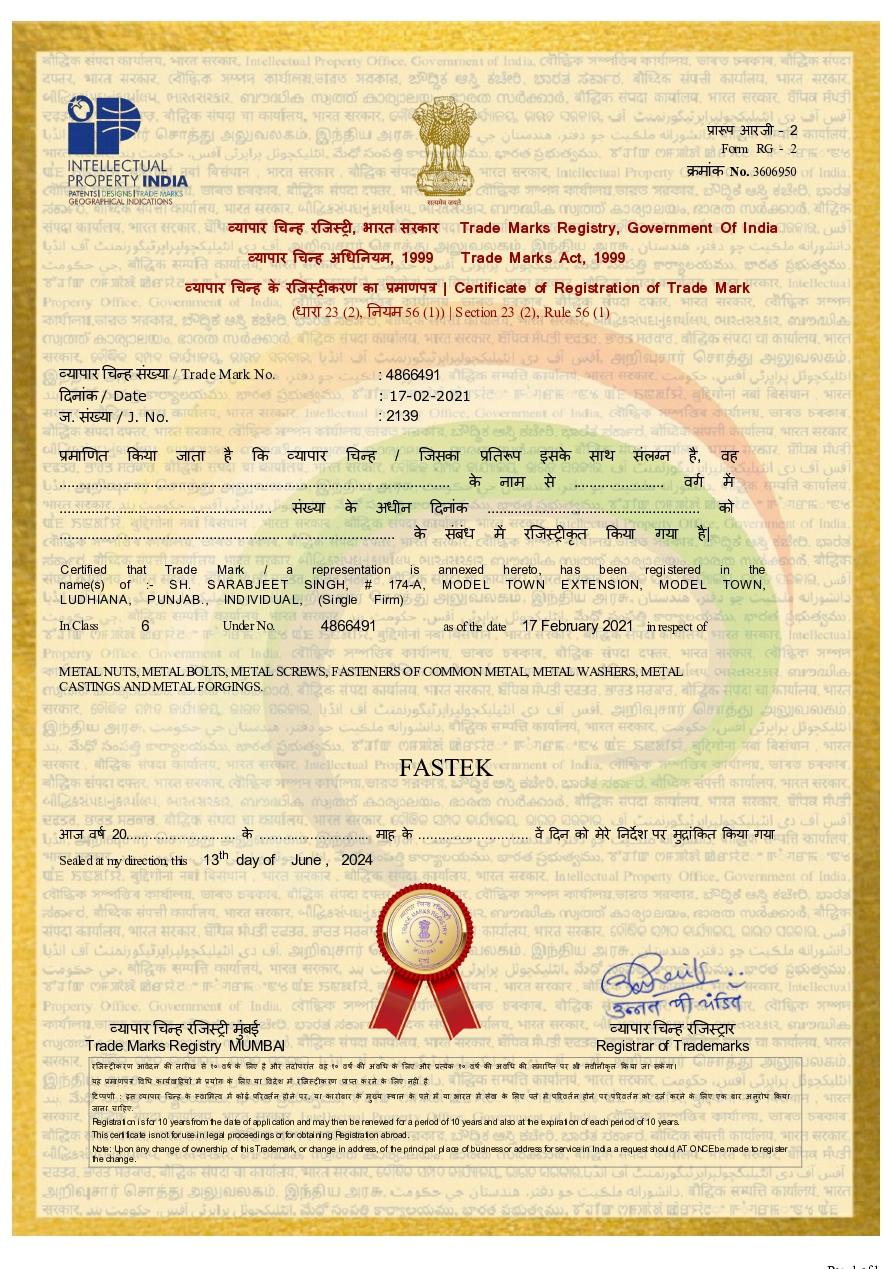When it comes to critical connections in construction, automotive, and heavy machinery, high tensile fasteners are a key component. But choosing the right fastener isn’t just about size or thread—it’s about selecting the correct grade, especially when safety and performance are on the line.
If you’ve seen bolts marked with numbers like 8.8, 10.9, or 12.9, you might wonder what they mean—and how they differ. In this blog, we’ll help you understand the differences between these fastener grades and how to choose the right one for your application.
🧪 What Do Fastener Grades Mean?
High tensile bolt grades are defined by ISO 898-1, which specifies mechanical properties of fasteners made from carbon or alloy steel.
Each grade consists of two numbers:
The first number (e.g. 8, 10, 12) multiplied by 100 gives the minimum tensile strength in megapascals (MPa).
The second number (e.g. .8, .9) is the ratio of yield strength to tensile strength.
Example:
A Grade 8.8 fastener:
Minimum tensile strength = 8 × 100 = 800 MPa
Yield strength = 800 × 0.8 = 640 MPa
Here’s a comparison table:
| Grade | Tensile Strength (MPa) | Yield Strength (MPa) | Common Use |
|---|---|---|---|
| 8.8 | 800 | 640 | General construction & machinery |
| 10.9 | 1000 | 900 | Automotive, heavy machinery |
| 12.9 | 1200 | 1080 | Aerospace, motorsport, robotics |
⚙️ Grade-by-Grade Breakdown
✅ Grade 8.8 – General Purpose Strength
Material: Medium carbon steel, quenched and tempered
Strength: Reliable for most structural and mechanical applications
Applications: Steel construction, agricultural machinery, standard joints
Best For: Projects that require strength but don’t operate under extreme stress or vibration.
✅ Grade 10.9 – High Performance in Motion
Material: Alloy steel, quenched and tempered
Strength: 25% stronger than Grade 8.8
Applications: Automotive suspension systems, pressure vessels, machine parts
Best For: Dynamic environments with high mechanical stress or shock loading.
✅ Grade 12.9 – Maximum Strength and Precision
Material: High-strength alloy steel
Strength: 50% stronger than Grade 8.8
Applications: Engines, turbines, robotics, aerospace structures
Best For: High-performance applications where failure is not an option.
🛠️ Key Considerations When Choosing a Grade
When selecting the right fastener grade for your project, consider the following:
Load Conditions: Higher stress requires higher grade fasteners.
Environment: Corrosive or high-temperature environments may affect performance.
Vibration or Shock: Grade 10.9 or 12.9 bolts are better for dynamic loads.
Cost vs Performance: Higher grades offer more strength but also come at a higher cost—choose according to application requirements.
⚠️ Mistakes to Avoid
Using a lower grade bolt in a high-stress joint – this may lead to deformation or failure.
Over-torquing high grade bolts – can cause thread stripping or breakage.
Mixing grades within one assembly – may result in uneven stress distribution.
🏁 Conclusion
Each fastener grade—8.8, 10.9, and 12.9—serves a specific purpose, and understanding the differences in strength, composition, and application is crucial for ensuring the safety and success of your project.
Whether you’re building a bridge, assembling a machine, or tightening engine components, using the right grade of high tensile bolt ensures performance, reliability, and peace of mind.
🔧 Need High Tensile Bolts for Your Next Project?
At National Fasteners, we manufacture and supply a full range of high tensile fasteners, including Grade 8.8, 10.9, and 12.9 bolts and nuts—precision-engineered to meet global standards like ISO, ASTM, and DIN.
📞 Contact us today to speak with our technical experts.
📧 Email: sales@nationalfasteners.in | 🌐 Website: www.nationalfasteners.in





